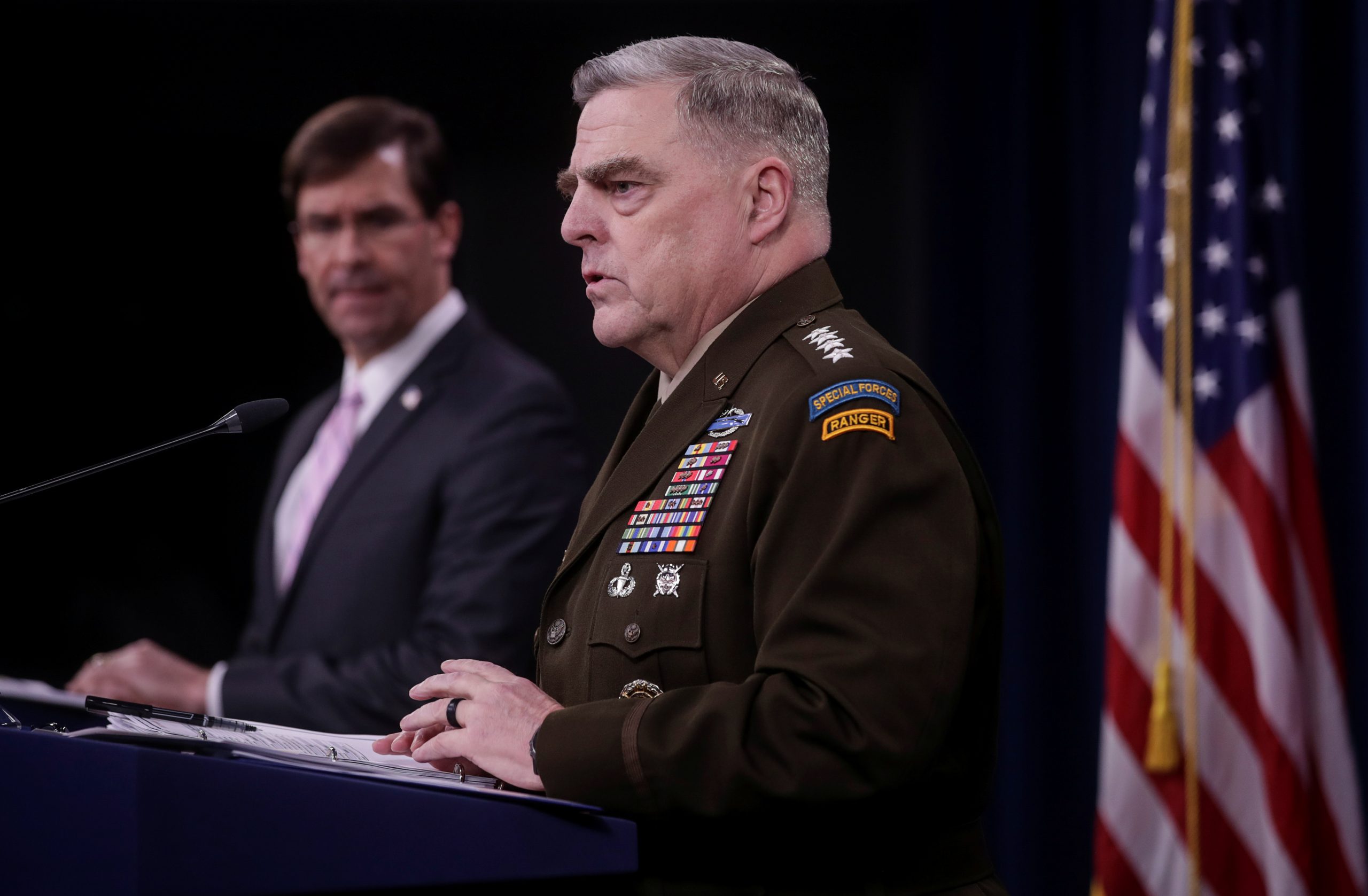A report was confirmed that some soldiers who were sent to Washington, D.C., amid the protests following the death of George Floyd, were given bayonets.
The Associated Press (AP) confirmed from Joint Chiefs Chairman Army Gen. Mark Milley that soldiers from the Army’s 82nd Airborne Division from Fort Bragg in North Carolina and the 3rd U.S. Infantry Regiment based just outside D.C. were sent, but were not actually deployed into D.C. amid the protests. Those members were issued bayonets.
The soldiers, however, were told the bayonets could not be on their rifle and had to be in their scabbard. They were also told they were not allowed to have weapons when entering the city without orders, Milley said in a letter to representatives on June 26, according to the letter obtained by the AP.
Additionally, the AP reports that some of the soldiers deployed were not trained in riot response.
Reps. Raja Krishnamoorthi (D-Ill.) and Ted Lieu (D-Calif.) sent a letter to Milley on June 22 with concerns about the reported use of bayonets.
“The escalation and violence leading up to and following those killings included those same troops meeting peaceful demonstrators with bayonets,” they wrote.
However, Milley did not say in his response letter that bayonets would not be used in the future for domestic protests.
In a statement to the AP on Thursday, the two representatives said, “While we are grateful for General Milley’s responses to our questions concerning the arming of troops with bayonets for potential deployment against protesters, we were disappointed he was not willing to commit to banning the practice.”
“We recognize the necessity of the Joint Force preserving flexibility to respond to varying circumstances, but it is difficult for us to imagine a circumstance which could necessitate or justify the deployment of bayonets against American civilians,” the representatives added.
Protests have broken out across the country for over a month over civil unrest following the death of Floyd, who died in Minneapolis police custody after a police officer pinned his knee into Floyd’s neck on May 25.

























 Continue with Google
Continue with Google